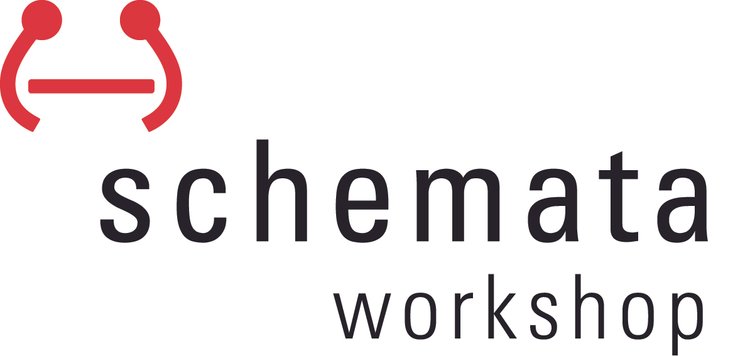Schemata Workshop is excited to announce that Principal Geoff Anderson has been selected as a participant in the Leadership Tomorrow (LT) class of 2021.
LT is an intensive civic leadership program focused on interconnections between elements of Seattle Foundation’s “Healthy Community” framework. The program helps participants further develop their leadership skills and practices, focusing on the goal of creating a healthy, just, and inclusive Puget Sound region. In particular, the program has been actively evolving its approach to racial equity, supporting participants’ development as antiracist civic leaders.
Geoff’s Reflection on Challenge Day 4: Arts + Culture
photo of Public Works Program courtesy of Seattle Repertory Theatre
As a fan of many arts and cultural events and organizations around Seattle, I was looking forward to our Arts & Culture Challenge Day. On any normal year, I make a habit of attending several plays at the Seattle Repertory Theatre and the Seattle Children’s Theater with my family, operas at McCaw Hall on date nights with my wife, museum shows with my daughter, and of course, and I love to take advantage of the wonderful food by patronizing restaurants around the city. However, in 2020 this topic was burdened with the additional considerations of the COVID-19 pandemic. The pandemic has affected all these cultural institutions and has disproportionately impacted BIPOC artists and organizations.
For Challenge Day, we broke into three groups that each had the opportunity to join a conversation with one or two amazing leaders in the Seattle arts and culture community. These included Elishaba Johnson of Wa Na Wari, Tim Lennon of LANGSTON, Brian Carter of 4Culture with Leilani Lewis of the UW, and Angie Kamel of the Seattle Rep’s Public Works program with Becky Witmer of ACT.
I chose the latter because I have a great appreciation for the Rep, and I was curious about their Public Works Program. Angie brought this program to Seattle in the past few years and worked hard to not only explain the program to the Rep’s Board but get them to support it. At the program’s core, it seeks to build diverse relationships throughout the community. They hold workshops with community groups, resulting in a “Grand Play” production with as many as 100 people on stage. Because of the hard work and years of relationship-building, they were able to continue this tradition despite the pandemic, pivoting to a virtual community theater performance of their own musical adaptation of Shakespeare’s Twelfth Night. This kind of community resilience is inspiring.
We also learned about some of the other amazing creative problem-solving that our local arts organizations have implemented in the past year. According to ArtsFund, 100% of arts organizations are currently offering some sort of digital programming. The Seattle Symphony is broadcasting performances with musicians positioned spread at a safe distance throughout the theater space, including areas normally reserved for the audience. Artists are banding together to create organizations like the Seattle Artists Relief Fund through LANGSTON, and community kitchens are cropping up across the city.
I particularly enjoyed reading about some of the amazing and diverse restaurateurs who are persevering through the pandemic. It happens that one of the first charitable contributions I made when the pandemic hit was to the Seattle Community Kitchen Collective to support not only the food service workers, but the provision of free meals in the community. My wife and I had been awaiting the opening of Melissa Miranda’s restaurant Musang, and were excited to hear they quickly and innovatively pivoted to this generous concept as soon as the pandemic hit (a stark contrast to the reaction of Tom Douglas). We learned that many other amazing chefs joined the effort, including Chef Kristi Brown of That Brown Girl Cooks and now Communion (who we were lucky enough to have cater our Schemata company holiday party last year!), and Tarik Abdullah who led a grassroots effort to build Feed the People Plaza. These chefs are not only good at their craft but are an inspiration for how to build community and bring people together through arts and culture.
Photo of Feed the People Plaza courtesy of Gabe Guarente / Eater Seattle.
If there is one thing that this pandemic has made me acutely aware of, it’s how much I miss community. Arts and culture organizations are unique endeavors that bring people together to share a collective experience. This is the foundation of building community. I am inspired by the level at which people have rallied to support the arts through this pandemic, but I also worry that it won’t be enough. I believe arts and culture play a role in the health of our community. I am also reminded how important it is to me personally. I write these reflections on Inauguration Day, wondering if a new administration may be willing to support a New Deal-type program that puts an emphasis on saving and restoring arts and cultural programs. What better way to bring unity? I also take it upon myself – what can we each do, professionally and personally, to better support the arts moving forward?
As I finish writing this, I am not only hungry to eat at one of the aforementioned restaurants, but am also feeling like I want to make a better effort at engaging in virtual opportunities to enjoy the arts. I was pleased that our family had kept a tradition of seeing the PNB’s production of the Nutcracker virtually, even dressing up to gather around the TV. It wasn’t quite the same, but I was able to appreciate the close-ups of the costumes in a way I hadn’t been able to from the 3rd balcony. This piqued my interest – maybe there are added benefits to the virtual format? I am looking forward to engaging in more opportunities in the future that not only support arts and culture and lift my spirits, but also build community across distance. - Geoff Anderson











